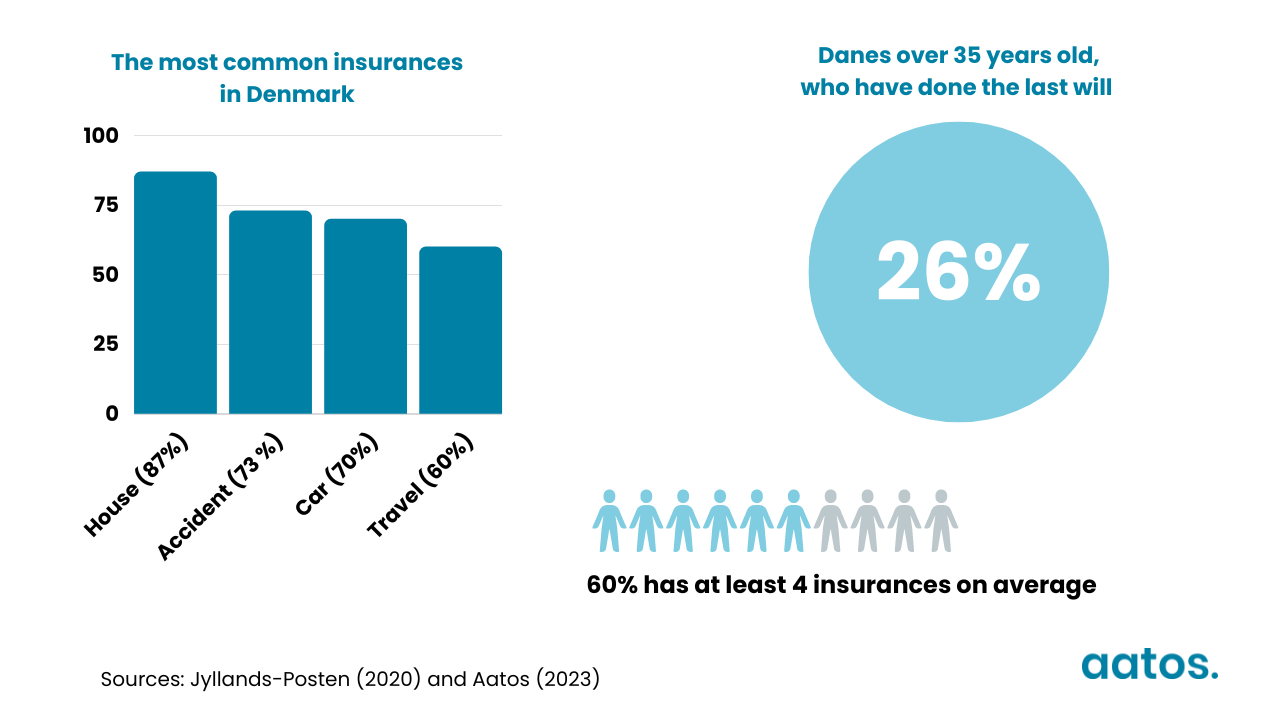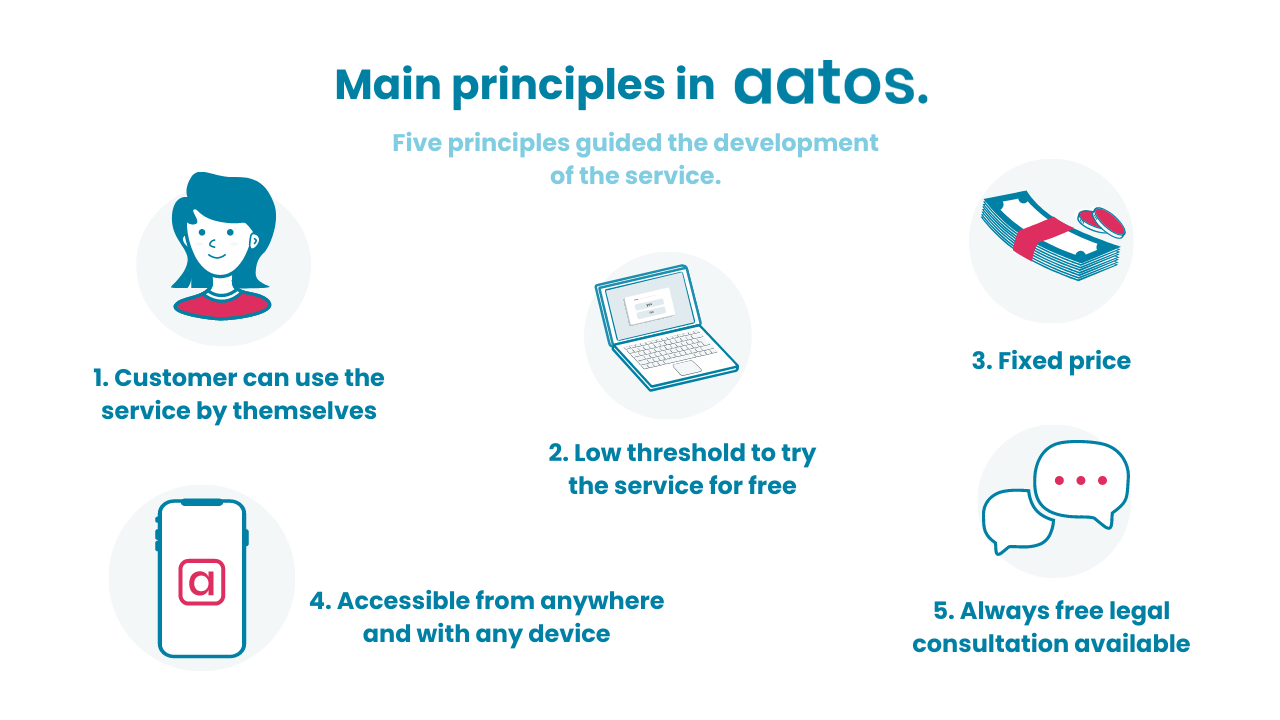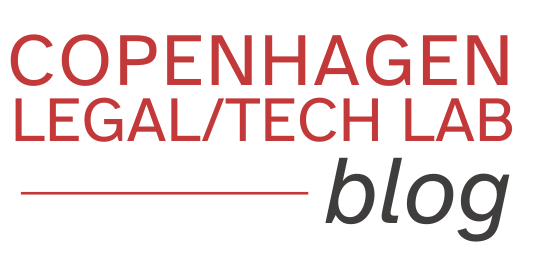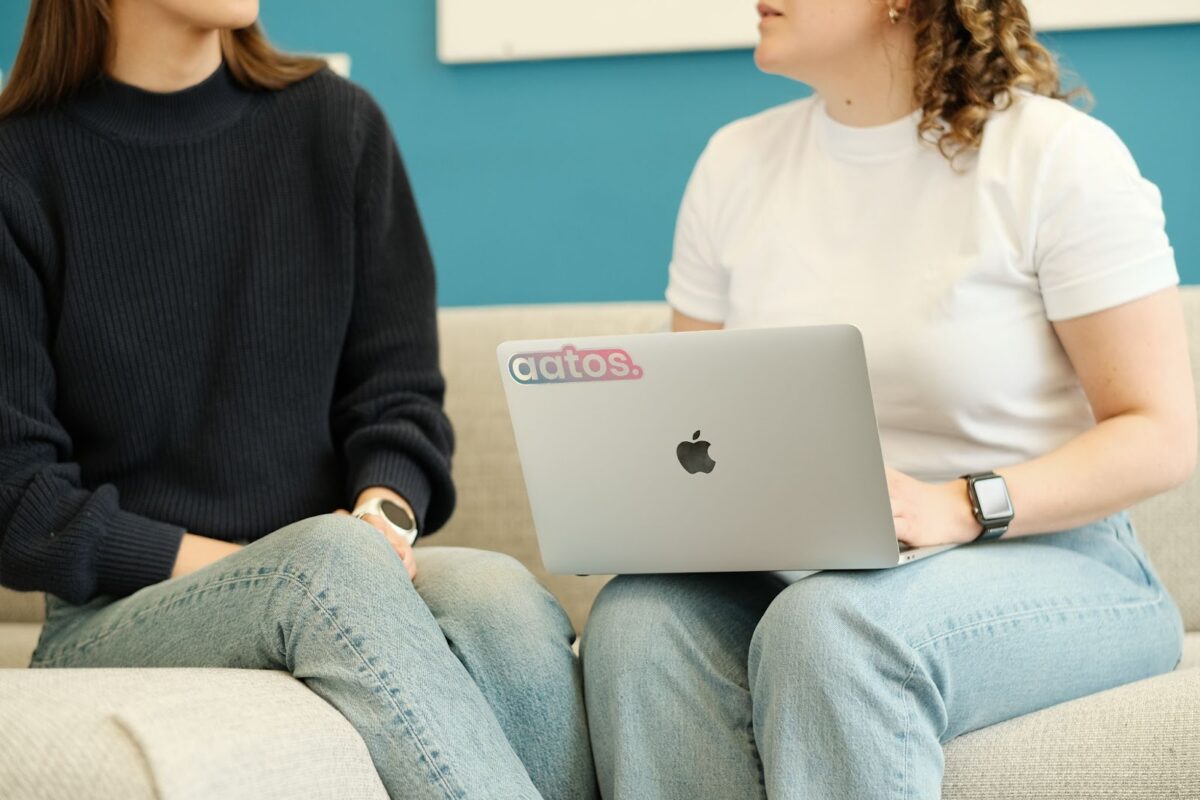Aku Pöllänen is the co-founder and CEO of the legal tech company Aatos. The mission of Aatos is to provide legal matters at a low threshold to consumers. Pöllänen thinks that technology can and should play a bigger role within the field of law.
Legal services have been relatively slow to adapt to the digital revolution, as the majority of law firms continue to predominantly offer localized, in-person services. Society, however, has significantly transitioned to online platforms, allowing for seamless interactions in banking, shopping, and dealing with public administration. While technology has undeniably influenced corporate law by providing tools to increase efficiency, it has yet to truly impact consumer-focused legal services.
The exclusivity of legal services has kept them out of reach for many ordinary people. For clients, addressing legal matters usually necessitates a visit to a law firm. Furthermore, comparing the costs of different law firms can be challenging. With lawyers frequently charging hourly rates, obtaining customized documents such as a last will, prenuptial agreement, or guardianship authorization can prove to be quite expensive.

A significant number of people choose to insure their wealth and health against unforeseen circumstances. A 2016 survey by Nordea revealed that, on average, a Danish adult spent 10,297 DKK on insurances per year, with 60% holding at least four insurances. The most common types of insurance were home insurance (87%), accident insurance (73%), car insurance (70%), and travel insurance (60%). A survey by Aatos in 2023 demonstrated that only 26% of Danes aged 35 or above had prepared a last will. These statistics highlight a general lack of awareness regarding legal documents and their implications on families and personal finances if not properly executed.
Digital technology is increasingly making a noticeable impact on the legal sector, a change that professionals in the industry are currently observing. This transformation is characterized by a paradigm shift that emphasizes client needs. Aatos is among the companies that are revitalizing the existing legal environment and fostering innovation within the field.
Introducing Aatos
Aatos, founded in 2020, is a Finnish legal tech company that combines legal and technological expertise to deliver consumer-focused legal services such as estate inventory, prenuptial agreements, guardianship authorizations, and last wills in an affordable and user-friendly manner. We believe that legal documents should be accessible and reasonably priced for everyone. Aatos also ensures that customers can complete tailored legal documents without needing to learn complicated legal terms or consult with a lawyer.
The inception of Aatos was inspired by estate inventory and the potential of technology to simplify the process for ordinary people. Estate inventory is a prevalent and complex legal task, especially during emotionally burdening times when the person has lost a loved one. Navigating bureaucracy and ensuring that the documents are prepared correctly can be overwhelming.
This initial question ultimately led us to reconsider the broader legal services landscape and challenge the status quo within the legal industry. By leveraging digital technology, we developed a service that provides step-by-step guidance to users, enabling them to complete tasks without retaining counsel. In addition, customers are clearly informed about costs and can receive free legal support whenever they encounter difficulties while using the platform. Today, Aatos already operates in three countries, Finland, Denmark and Sweden, and over 100 000 customers are using the service.
Today, Aatos already operates in three countries, Finland, Denmark and Sweden, and over 100 000 customers are using the service.
Rethinking digitality in a human-centric way
Although Aatos operates in the legal tech sector, we primarily identify as a technology company with a focus on creating accessible legal tools and solutions for ordinary individuals. This approach aims to enable better decision-making for both families and individuals.
However, simply combining legal expertise with technology is insufficient to revolutionize the way legal matters are addressed. Instead, we adopt a more proactive and comprehensive approach, actively seeking to understand customers’ situations, offering them tailored solutions, and aiming to predict issues before they escalate into problems.
Aatos not only prioritizes a user-centric strategy, but also a human-centric one. Based on our experience, customers often feel insecure regarding legal matters and need additional emotional support and encouragement throughout the process. We have acknowledged this by developing a user-friendly interface and anticipating user inquiries, ensuring both their practical and emotional needs are met.
Digital technology is not a curse word
While digital technology has proven to be an efficient means of handling various tasks in society, it still faces opposition from some quarters. Traditional lawyers often raise two primary counter-arguments emphasizing the lack of human interaction and its suitability for elderly populations.
Human Interaction vs. Digital Technology
One common assumption against digital technology is that it eliminates human interaction and weakens the customer experience (e.g. Aspect Consumer Experience Index, 2016). Indeed, poorly-designed application interfaces that require users to independently navigate their functions exemplify this concern. However, understanding users’ needs is actually more important than simply applying new technology.
When considering traditional law firms, they tend to be relatively remote. Clients must proactively seek out a lawyer, book appointments, and visit the professional. Before their first interaction, clients usually conduct preliminary research on their own to determine which legal document they need. Lawyers mostly serve as document creators, while clients may remain unsure about how certain conditions will affect their lives.
The key to designing effective digital services lies in considering not just the end-user, but the human being utilizing the service. This entails providing users with adequate guidance, feedback, and reassurance that they are navigating the process correctly. The notion of presence is just as crucial in the digital environment as it is in the physical world. Particularly when dealing with official documentation, users need to feel confident and well-informed about the next steps and their overall progress. By recognizing these considerations, digital services can enhance efficiency without sacrificing the human touch.
Elderly people can cope with online services
The second counter-argument challenging digital solutions concerns the belief that elderly individuals are less familiar with internet usage than younger generations. This perspective assumes that elderly people prefer face-to-face interaction with customer service representatives at the physical locations. Such a notion, however, inadvertently discredits elderly individuals’ ability to keep up with technological progress and implies an unwarranted need for additional assistance.
Aatos’ data reveals that the largest customer segment comprises people over 65 years old, including numerous customers in their 90s. It is true that some users may seek help from their children or others when using Aatos’ services. Nonetheless, the significant number of elderly individuals using Aatos demonstrates that they, too, can effectively engage with digital technologies, provided that the user interface is thoughtfully designed.
Also, according to a 2020 Eurostat survey, approximately 61% of Europeans aged 64 to 73 reported using the internet. In Finland, Sweden, and Denmark, where Aatos operates, internet usage ranks among the top five in Europe. This further supports that elderly populations can successfully navigate and benefit from digital services.
Digitality already affects how traditional law firms perform
Digitality encompasses more than just technological advancements and law-focused digital solutions. Digital marketing plays a crucial role in business operations, attracting customers, and building brand recognition.
In today’s world, people frequently turn to Google for answers to perplexing questions or to locate products and services. If a law firm does not appear in the search results, potential clients may remain unaware of its existence. Similarly, targeted advertisements on social media can be more effective than traditional billboards, as they are tailored and evolve based on the customer’s journey.
An effective marketing strategy helps establish trust and credibility, as customers recognize the brand from advertisements. This recognition gives them confidence that the company is reliable and committed to quality. Consequently, legal enterprises investing in digital marketing are likely to acquire more customers and generate higher profits.
A Message for the Law Students
To all current law students, who may be concerned about digital technology replacing lawyers, there is no need to worry. While digital technology may automate certain aspects of legal tasks, it will not render lawyers obsolete. Instead, digital tools enable lawyers to delegate routine tasks to technology, allowing them to focus on more intricate issues.
However, it’s important to acknowledge that technology will inevitably play a significant role in the practice of law in the future. Consequently, institutions, universities, and law students need to proactively consider interdisciplinary collaboration – working “beyond the legal realm”. This approach entails fostering cooperation across various fields and creating tailored degrees to support both existing and emerging legal work.
Historically, innovations have only brought about substantial change once they became commonplace in households. For example, the computer revolutionized society not when data processors were introduced to the offices, but when personal computers became common household items in the 2000s.
As we embark on the future of the legal profession, the essential question remains: Are you prepared?
References
Aatos (2023) “Om oss”. Online.
Aatos (2023) “Nordisk studie: En fjerdedel af danskere over 35 år har allerede et testamente”. Online.
Aspect (2016) “Aspect Consumer Experience Index”. Online.
Eurostat (2020) “Individuals – Internet use” Online.
Jyllands-Posten (2020) “Danskerne bør tage deres forsikringer mere seriøst”. Published 3.4.2020. Online.

